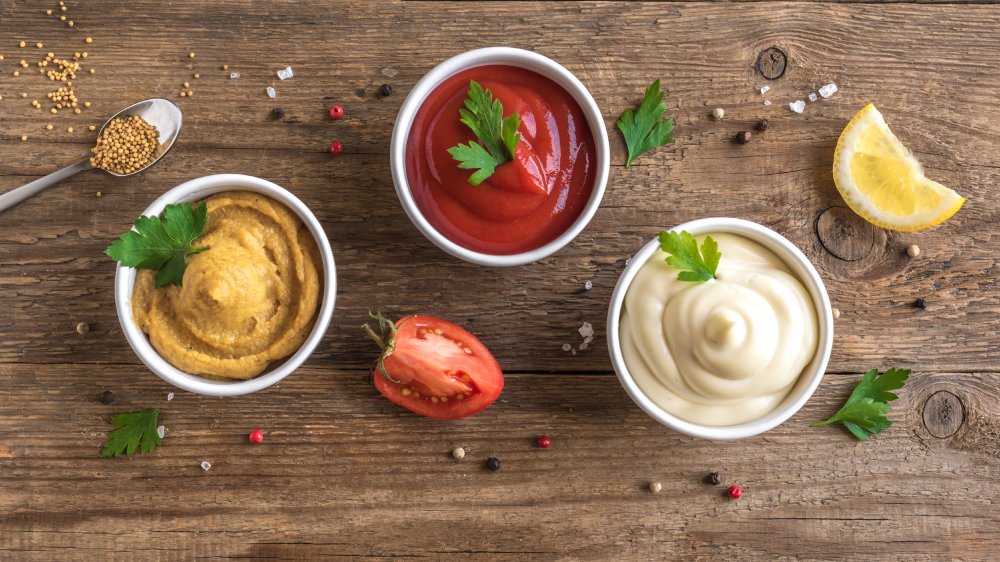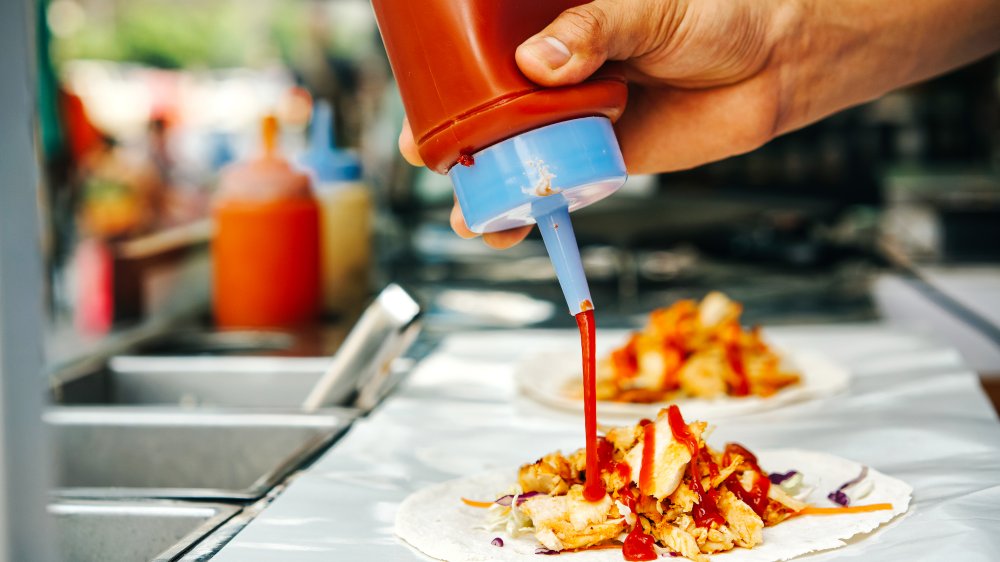You've Been Storing Ketchup Wrong This Whole Time
It's an age-old debate, right up there with if pineapple pizza is good, and Pepsi versus Coke. How does one properly store ketchup? Maybe you've faithfully kept it refrigerated, nestled between the half-finished jar of mayo, and the giant bottle of Sriracha you snagged at Costco. But maybe, just maybe, you're perceptive enough to notice that your favorite diner leaves its glassy bottles of ketchup out in the open, unrefrigerated for hours at a time. Is it sanitary? Or reckless? Next thing you know, you've awoken in a cold sweat at 4 a.m., wondering how you should handle one of America's most iconic condiments.
But ketchup, it turns out, doesn't need refrigeration — at least for a little while. Even after you open the bottle of sweet, gooey, tomato-flavored goodness, ketchup can survive, unrefrigerated, for about a month, according to culinary buff Lauren Feingold. Finally, an answer! But, Feingold adds: "The question that you have to ask yourself is, 'How frequently do you use ketchup?'" Because while it's possible, storing your ketchup outside the fridge can be a dangerous game (via Today).
Gaging your ketchup obsession
Restaurants, and particularly diners, go through ketchup with alarming speed. Just think about how often the condiment is squirted onto fries, burgers, onion rings, or, more contentiously, hot dogs. With bottles of ketchup emptying out after a mere several hours, restaurants don't need to constantly haul the condiment back into refrigeration. The average person may use ketchup once a week. Or, maybe you're one of those enthusiasts who spatters ketchup onto their pasta. We are not here to judge.
But it's crucial to ask yourself how quickly you go through a bottle of ketchup. If you finish a bottle within a few weeks, then it can sit in the pantry. If it takes any longer than a month, keep it chilled: This extends its shelf life to about six months, according to Insider. Several brands, including Annie's, Del Monte, and the ever-present Heinz, recommended the fridge over the pantry. While ketchup's acidity can keep it edible and intact at room temperature, it will inevitably start to taste and smell a little funny, especially after the 30-day mark, according to Huff Post.
And let's be real: Nobody wants to deal with strange, experimental, fermented ketchup.

